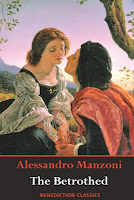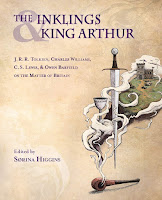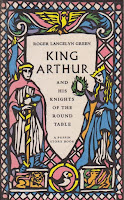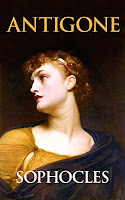
Thursday, February 20, 2025
The Divine Comedy by Dante

Friday, November 8, 2024
Best-read vs. Well-Read - Quote from Dennis Kinlaw

Friday, May 24, 2024
Audible Haul – Bargain Basement or Money Pit?
Not only
did I get my three free books (technically 13 books for 3 credits), but my wish list had become so extensive that I
bought three more credits (for a small discount). The folks at Audible are not
stupid. I wonder if anyone really ever signs up for the free months and gets
away unscathed. Here is what I ended up buying:
For the
free credits: C.S. Lewis Essential Audio – nine of his non-fiction books (39
hours), Hercule Poirot Short Stories (35 hours, reg $50), Homer Box Set: Iliad and Odyssey by W.H.D. Rouse – (25 hours) but it came with a BOGO offer so
I also received George McDonald’s Fairy Tales)
Did I stop
there? Oh no, dear reader. How could I turn down Charlotte’s Web read by E.B.
White? ($10), and The Magic Apple Tree by Susan Hill ($13), and 36 hours of Agatha Christie for ONE DOLLAR?
Was my
heart satisfied? Not yet. I had to have my favorite, The Ghost and Mrs. Muir ($10)
and 12 hours of Miss Marple’s short stories (when it went on sale for $8), and Sean Bean reading King Arthurand the Knights of the Round Table by Benedict Flynn (another $8), and James Herriot’sTreasury for Children ($5)
Well, I’m
not sure if I did well or if I was just plain hoodwinked. My three free months
led to a spending spree of around $90 - something I would never actually spend
in a real bookstore.
Granted, if
I had used their regular prices of $15 per credit, I would have gotten only 6
books for that amount. As it happens, I purchased 32 books and dozens of short
stories so I am not too disappointed. All I need to do now is to cancel my “free” subscription before my husband checks our credit card statement. And to find time to start listening!
Do you do
Audible? What do you think?

Thursday, March 14, 2024
The Betrothed by Alessandro Manzoni

Friday, February 9, 2024
Worthwhile Movie #21 - BBC's North and South
Based on
Elizabeth Gaskell’s 1854 novel, North and South tells the story of how Reverend Richard
Hale moves his family from the (traditional) south of England to the (industrial)
north after he loses his curacy due to “matters of conscience.” Living at
reduced means with a sickly wife, Mr. Hale tutors young pupils and even gives
lessons in Latin to John Thornton, overseer of a large cotton mill.
One of the main story lines is how Hale’s genteel daughter, Margaret, adapts to this new reality. Members of Milton's upper class are suspicious of her father’s mysterious departure from the ministry and do not welcome her into their circle. She reaches out to several factory workers, but they misunderstand her overtures of friendship. It is delightful to watch her grow as she stumbles along (yet persists) in building relationships under these difficult circumstances.
A secondary
story, but a no less crucial one, is about the dynamics of power. Are all the
factory owners villains who care only for money and not a bit for the laborers? Do the workers have a right to strike for better wages? In our present-day understanding (relying heavily on a “critical theory mood”), there are only two
categories: the oppressed and the oppressor. No “master” can ever be right. And the oppressed can never be wrong. I was stunned by the deft, nuanced handling of
these subjects in this film. It would have not been made in the same way today.
Third, is
the love story, which, though central to the narrative, was understated, simmering
just below the surface for the most part. I love a story of unrequited love
(don’t ask me why!) so the fact that it took four hours for the romantic misunderstandings
to be resolved was fine by me. I also appreciated that the lead characters were
not over the top good-looking. He was a little too hawk-nosed and she a little
too plump by Hollywood standards, yet they were perfection in their respective roles.
I am not sure where this can be streamed (maybe Brit Box?), but we found it on DVD and were so glad to have discovered it. Now I have to go back and re-read the novel!

Thursday, January 11, 2024
Reading Goals for 2024

Thursday, December 28, 2023
Reading Year in Review 2023

Thursday, November 23, 2023
Reading for the Love of God by Jessica Hooten Wilson
Why and how we read matters as much as what we read.
It is not enough to read the Bible; you must eat the book
(quoting Eugene Peterson and Ezekiel 3:3).
The premise
of Reading for the Love of God is that words must get inside you and change
you. This is transformation vs. information. If you want to know how to "eat the
book," learn how to read – not only the Bible but other great books as well – as
a spiritual practice.
Wilson’s book often reminded me of the Literary Life Podcast because both she and they emphasize the folly of reader-centered education (where students are asked how the text makes them feel thereby missing most of what the text is actually saying). She suggests that one way to avoid that is to use the ART metric. In it, the Author, Reader and Text are given equal emphasis. Yes, the readers emotions are involved, but only after he begins to pay attention to what the text is actually saying - all the while being respectful of the author’s point of view.
To be a
critic is to stand over the text making the reader judge and master over the
text. This standing over prevents the understanding necessary to be
transfigured by the reading. The reader should approach the book in the way a
student draws near a teacher, with a willingness to learn, to receive, from the
books. (p. 11)
Wilson places
a strong emphasis on how medieval Christians saw deeper meanings in everything
they read in the Bible, and criticizes Luther (and the Reformation) for making the literal
meaning of the text paramount thereby excluding the other “senses”
(allegorical, tropological, and anagogical). I find this to be problematic because
it leaves too much room for heretical interpretations. One of her main examples
of a saint whose reading style we should imitate is Juliana of Norwich. But
Wilson doesn’t mention that Juliana’s zeal to see the love of God in every verse
of Scripture caused her to negate the possibility of wrath, judgment or hell.
Apart from
that caveat, I appreciated Wilson’s deep love for the written word and her
encouragement to keep reading deeply.
A life of reading counteracts the malformation of screen and digital technology…. In contrast to many other pastimes, reading demands engagement. It asks something of the participant. It cultivates that person’s imagination and increases their vision of the world. (p. 15)
Blessings,
Thursday, July 27, 2023
Uncle Tom's Cabin by Harriet Beecher Stowe

Thursday, June 8, 2023
The Story of King Arthur and His Knights by Howard Pyle
I had been
primed for Howard Pyle’s King Arthur and His Knights by two previous retellings
of the Arthurian legends (Green’s and Knowles’). But I wasn’t prepared for how
deeply I would love this third version.
From the
very first page, I was captivated by Pyle’s affection and reverence for this
legendary king. In the introduction he wrote, I believe that King Arthur was
the most honorable, gentle Knight who ever lived in the world. And those who
were his fellows of the Round Table – taking him as their looking glass of
chivalry – made, altogether, such a company of noble knights that is hardly to
be supposed that their like will ever be seen again in this world.
Truly his
heart was “stirred with a noble theme.”
Unlike the two previous authors I read, Pyle manages to weave the legends together into a cohesive and beautiful adult fairy tale, which I found enthralling and at times achingly beautiful. Because he was unconcerned with brevity (this is the first of four volumes), he also includes many details that the others left out about Guinivere, Sir Pellias, Excalibur, Merlin, and much more.
The rich language
made my heart sing! At times it was something simple like the black knight being
called the “Sable” Knight. At other times it took on fabulous fairy tale tones
such as, Thus died that wicked man, for as King Arthur drave past him, the
evil soul of him quitted his body with a weak noise like to the squeaking of a
bat, and the world was well rid of him.
I normally
hate moralizing in books, but I thought Pyle was very effective in making
connections between the knight’s actions and his expectations that his readers
would also live lives of faithfulness and honor:
So endeth
the story of the winning of Excalibur, and may God give unto you in your life,
that you may have His truth to aid you, like a shining sword, for to overcome
your enemies; and may He give you Faith (for Faith containeth Truth as a
scabbard containeth its sword), and may that Faith heal all your wounds of
sorrow as the sheath of Excalibur healed all the wounds of him who wore that
excellent weapon. For with Truth and Faith girded upon you, you shall be as
well able to fight all your battles as did that noble hero of old, whom men
call King Arthur.
This is a
book that I can’t wait to own so that I can underline it to my heart’s content. I listened to
the audio version by Stuart Langton (via Hoopla) and then read the chapters on
my kindle to savor them a second time. Though the language is occasionally
difficult, most of the old-fashioned words can be deciphered within their
context. Highly recommended if you love beautiful storytelling.
I am only on the beginning of this fantastic journey. There are no less than 456 books listed at Goodreads of Arthurian Legend retellings!

Thursday, May 25, 2023
King Arthur and His Knights by Roger Lancelyn Green
My entire knowledge of the Arthurian legends is based on movies from my childhood (“Camelot” and Disney’s “The Sword in the Stone”), so this book was bound to be enlightening. I must admit the first fifty pages were tough going with countless knights being named on one page and countless unnamed knights being killed on the opposite page. But I’m glad I persevered.
In the
introduction to King Arthur and His Knights, Green states that although he used Sir Thomas Malory’s “Le Morte D’Arthur”
as the basis for his retellings, he also includes stories from half a dozen
other sources. I was disappointed that Green told the stories quite simply without
any beautiful language, but discovered that the legends themselves are so
compelling that they don’t need much embellishment. I thoroughly enjoyed the
book once I adjusted my expectations in that regard. As I read, I was reminded
of other favorite stories. The lion that meets Sir Percivale had Aslan-like
characteristics and the Enchanted Ship and the Quest reminded me of Lord of the
Rings. At times I felt I was immersed in a sad and beautiful fairy tale. The Christian
symbolism throughout was also fascinating.
Green does
his best to weave the separate stories into a single timeline, but don't expect the same cohesiveness as a novel. The first group of stories introduce
Arthur and the evil Morgana le Fay. Book Two is about the noble
knights of the Round Table. Book Three focuses on the quest for the Holy Grail,
and Book Four is about the final days of King Arthur’s reign.
My nephew named
his new daughter Columba (after a woman in the Arthurian legends) and I wanted
to know more about her. Sadly, she appears in only one sentence in this book,
but I am delighted that my curiosity led me to take the plunge into these fabulous
tales. It is easy to see why they have captured the imagination of fans for centuries.
P.S. When I finished this, I immediately devoured Sir James Knowles' version which was a bit longer and in King James English (which seemed more fitting). I loved both versions.

Friday, April 28, 2023
What I Read and Watched in April 2023

Friday, July 1, 2022
What I Read in June

Friday, April 22, 2022
April 23 - World Book Day
On April 23 (St. George’s Day), 1616, Miguel de Cervantes breathed his last, on exactly the same day as the death of William Shakespeare. It was singularly and surely providentially appropriate that the brightest jewels in the golden ages of Spanish and English literature should have taken their respective last bows together. It was also singularly appropriate that these slayers of dragons should have died on the Feast of St. George, true knights as they were, who had wielded their pens like lances in the service of the good, the true, and the beautiful.
Quoted from Joseph Pearce in Crisis Magazine 1/1/22
(Another reason I like to celebrate World Book Day is that two of my favorite authors were born this week. Charlotte Brontë on the 21st and Elizabeth Goudge on the 24th. Lots of reasons to eat cake!!)

Friday, February 25, 2022
Far from the Madding Crowd by Thomas Hardy

Friday, December 31, 2021
Reading Year in Review - 2021

Thursday, October 28, 2021
What I Read and Watched in October

Friday, September 17, 2021
How to Get Started Reading Dante

Friday, August 20, 2021
A Place to Hang the Moon by Kate Albus

Friday, July 23, 2021
Antigone by Sophocles

























